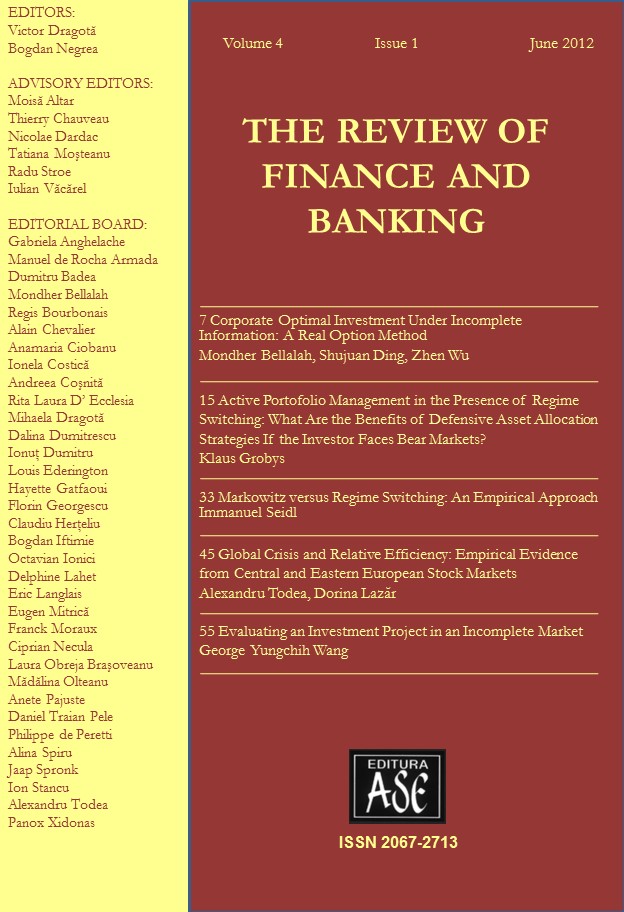Global Crisis and Relative Efficiency: Empirical Evidence from Central and Eastern European Stock Markets
Global Crisis and Relative Efficiency: Empirical Evidence from Central and Eastern European Stock Markets
Author(s): Alexandru Todea, Dorina LazărSubject(s): Economy, Financial Markets
Published by: EDITURA ASE
Keywords: Relative efficiency; European emerging stock markets; Global crisis Stochastic processes; Martingale;
Summary/Abstract: This study investigates the effects of the Global crisis on the relative efficiency of ten Central and Eastern European emerging stock markets, using the Generalized Spectral test of Escanciano and Velasco (2006) in a rolling window approach. This test is robust to the distributional assumptions, to the presence of time-varying volatility, being able to detect a wide range of linear and non-linear dependencies in conditional mean. The results suggest that the degree of markets inefficiency varies through time, providing empirical support for the Adaptive Market Hypothesis rather than for a clear trend towards higher efficiency as postulated by the classical Efficient Market Hypothesis. Surprisingly, during the crisis period there has been registered an improvement of the degree of efficiency in the case of seven markets out of ten.
Journal: The Review of Finance and Banking
- Issue Year: 4/2012
- Issue No: 1
- Page Range: 45-53
- Page Count: 9
- Language: English

